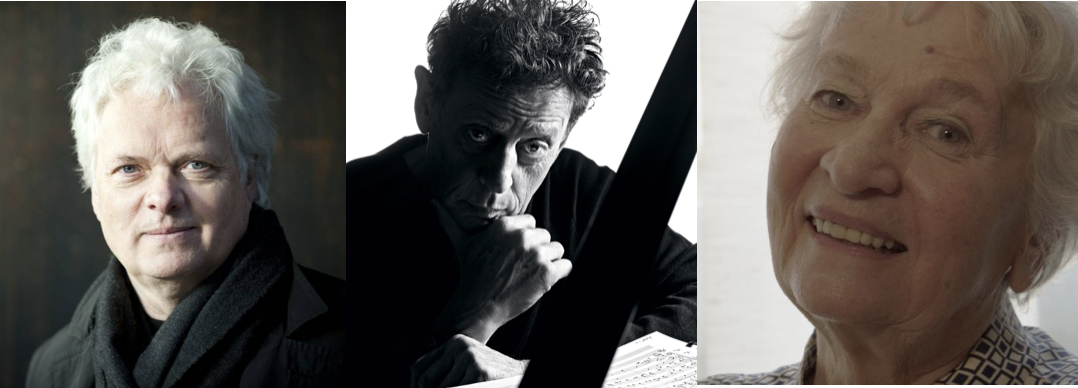Goebbels/Glass/Radigue
N°20/58 is a piece by Heiner Goebbels, written for Erwan. It demonstrates the curiosity about the performer’s stage presence, as well as his desire to exploit the perception of sounds as much as the sounds themselves. Thus, No20/58 is a piece written for a piper on the move.
It was staged outdoors in a setting chosen by Heiner. Erwan came slowly uphill towards the audience on foot, putting the performer’s body to the test. The music filled out the open space with each step by making it resonate, thanks to the power for which the bagpipes are renowned.
Then the composer and the musician worked together to find a way of adapting the piece for an audience seated in an enclosed space. The piper found himself outside once again, starting to play outside the hall. And it was up to him to then decide how to come closer to the listening ears, and recreate this piece for each space and each audience. The inclusion of two Bach arias, linked together by increasing flurries of trills, provides a score which maps out his course.
Eliane Radigue, on the other hand, had a desire, when she discovered this instrument, to contain the volume of the pipes in order to impose a delicate and intimate connection which characterises her work. It’s not so much a question of composition with broad movement, more one of a writing designed to delineate a reduced space, thanks to muted sounds and the harmonics that emerge. Erwan is almost stock-still, seated in a chair very close to the audience.
In this piece, Eliane continues to search for, in her words, “a complete universe of sound, one in which each listener can hear, find, refind and create their own internal music, allow themselves to be lulled and to journey endlessly.”
Two Pages, written by Philip Glass, is a piece first intended as a continuum for piano. In transposing it for bagpipes, Erwan plays with the volume he can achieve between the bag and the drones, and the speed of his fingers. So, Two Pages became a score that allowed him to really make his instrument work to full effect. The sound of the bagpipes takes over the space to the point of being overpowering, until it stops dead, before surprising everyone one last time.
The Composition “No. 20/58” is a commission by Swiss Festival
Heiner Goebbels
Schloßmediale Werdenberg for the Bretonian Bagpipe Virtuoso Erwan Keravec. Since the Festival always happens at Pentacost Heiner Goebbels unterstands this 15min long piece also as a belated musical ‘via crucis’, which also works with motives from Saint John's Passion by Johann Sebastian Bach.
When Erwan Keravec asked Eliane Radigue how she incorporated the bagpipes into her work, here’s how she answered:
Eliane Radigue (March 2019)
"When you contacted me about this adventure, I think it was the element of challenge that first got my attention: bagpipes, bagads, Breton and Scottish pipes, or pipers, the little I knew about it seemed quite far away from my sonic world.
And I have to admit that several of our shared friends, eminent musicians, spoke so warmly about you that the challenge became even more tempting, or at least it calmed my fears about it. I’m not sure which. I really like challenges that force me out of my own routines.
All the same, I would never, ever have thought it would have gone as far as it has. How so? With the pianissimos all but finished, and the mezzo fortes that are more mezzo than forte, dancing and twirling in an infinite space, in this vast richness of pulses, harmonies and beats, vibrating from the depths of space and existence.
Poetry submerging in a background of sweet melodies, and sublime harmony emerging like another gift. Wow!!!
The first burst of our second encounter – no doubts, it’ll work.
It was no longer a challenge but a gift. And what a gift!
The universe of sound in its totality, in which each listener can hear, find, refind and create their own internal music, allow themselves to be lulled and to journey endlessly.
A short pianissimo section (so short!) to begin with, to get us ready for the adventure, and then the necessary final result in order to come back down to earth in a decrescendo and land on our feet.
What an instrument! What a player! But most of all, what richness in this fusion, this transformative mystery that brings life to the ineffable.
Thanks, Erwan, for all this magic."

